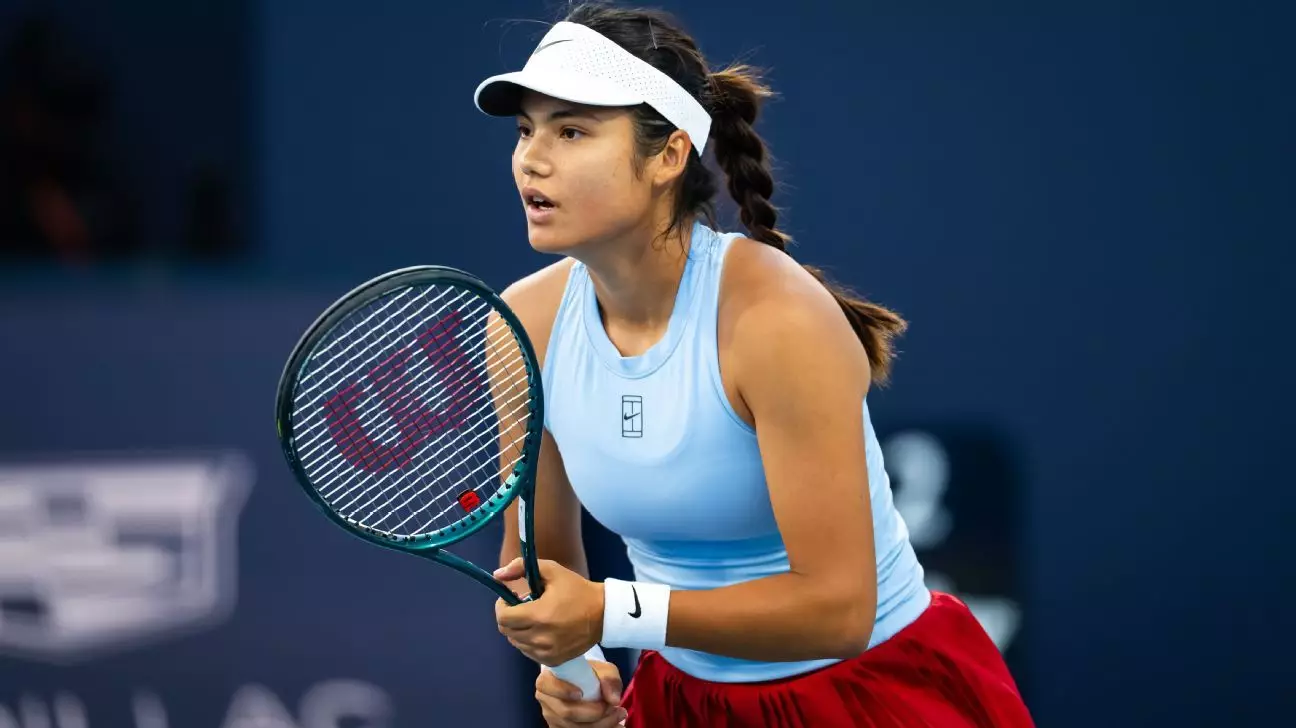Emma Raducanu’s journey through the professional tennis circuit has been emblematic of both the sport’s unpredictability and the profound challenges that young athletes face. As she aligns herself with former player Mark Petchey in a more informal arrangement, Raducanu has taken a step back from the intense scrutiny often associated with structured coaching relationships. This decision arises after she grappled with a string of coaching changes and performance plateaus. It is a refreshing change that signals a shift in her strategy towards emphasizing personal comfort over rigid technicality.
Transitioning from Pressure to Perspective
For Raducanu, tennis has always been a high-pressure environment, especially following her shocking triumph at the U.S. Open. The expectations—both personal and external—can be overwhelming. Her admission that she is “figuring things out” resonates with many young athletes who often struggle with the burdens of success too soon. Instead of following a prescriptive regimen, Raducanu’s current approach encourages flexibility, emphasizing self-discovery and adapting techniques that resonate with her playing style rather than conforming to conventional wisdom.
The Art of Rest and Recovery
Raducanu’s decision to prioritize rest by withdrawing from the Billie Jean King Cup qualifiers is particularly telling. In a world where athletes often feel compelled to compete at every opportunity, her understanding of the need for recovery showcases a mature perspective. She recognizes that mental and physical fatigue can be counterproductive to long-term success. By taking a break and engaging in a focused training block, she reinforces the notion that sometimes, stepping back is crucial to moving forward.
Less Is More: Redefining Intensity
Her insight that “less is more” is not just a catchy phrase; it reflects a fundamental understanding of efficiency. Raducanu’s acknowledgment of over-training suggests a depth of self-awareness often lacking in younger competitors. In a sport where overexertion is commonplace, her focus on maximizing the effectiveness of her time on the court challenges the status quo. It is a philosophy that, if embraced by more athletes, could lead to healthier careers and greater overall well-being.
Preparing for Challenges Ahead
As Raducanu prepares to embark on her campaign at the Madrid Open, her refreshed mindset is sure to be a crucial aspect of her performance. She is not just returning as a former champion; she is coming back as a player who has learned to balance ambition with personal insights. Facing Dutchwoman Suzan Lamens, Raducanu’s new approach could lead to a more resilient competitive spirit, one built not merely on past glories but on a better understanding of her own game and needs.
In an era where many athletes feel the pressure to conform to conventional paths, Raducanu’s willingness to embrace a different narrative—centered on personal comfort, self-reflection, and tailored intensity—serves as a powerful reminder of the potential for growth and renewal in professional sports. This sophisticated approach may redefine her career trajectory, ultimately showcasing the strength found in vulnerability and adaptation.

